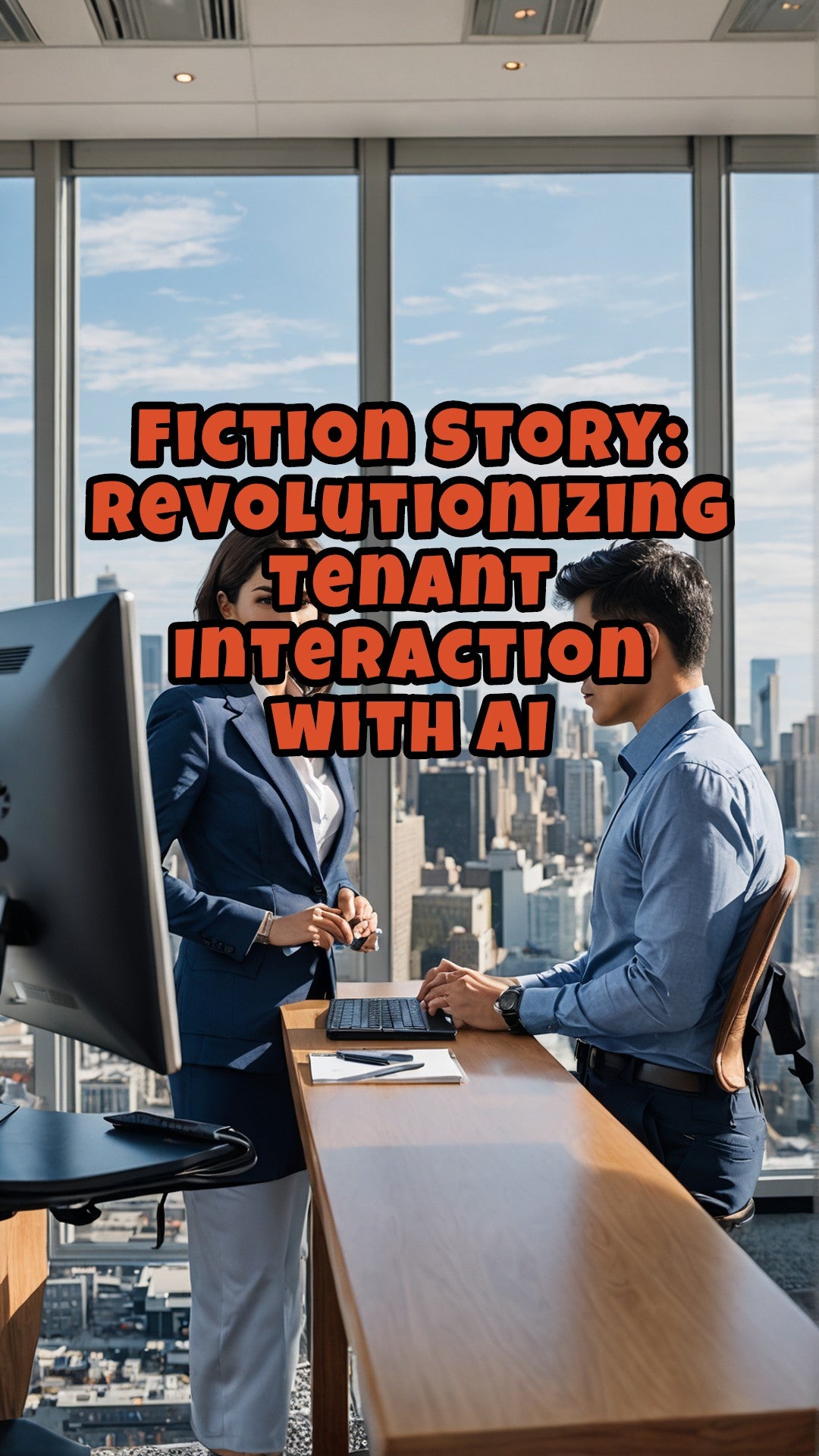Fiction story: The Answer on the Other End: How AI Transformed a Real Estate Company's Customer Service Crisis

In the heart of a bustling American metropolis, Horizon Property Management was facing a crisis that threatened to unravel its decades-old reputation. The company, managing over 50 residential buildings across the city, had become notorious for one particular failing: they never seemed to answer their phones. For their tenants, calling the management office had become an exercise in futility, with voicemails disappearing into what seemed like a black hole of corporate indifference.
Sarah Johnson, the 35-year-old Head of Operations, knew the statistics all too well. Customer satisfaction rates had plummeted to 45%, and their online reviews were a parade of one-star ratings, most mentioning the same issue - unreturned calls. "I feel like we're constantly playing catch-up," she confided to her team during yet another crisis meeting. "We're out showing properties, handling maintenance issues, filing paperwork... but we're losing our existing tenants' trust in the process."
The company's traditional setup wasn't helping. With agents constantly out in the field showing properties and attending to on-site issues, the office phones often rang unanswered. The small administrative staff was overwhelmed, juggling paperwork, scheduling, and an endless stream of calls. It was a perfect storm of inefficiency that was costing them both reputation and revenue.
Enter Mike Chen, a 28-year-old recent hire with a background in tech startups. While his colleagues saw only problems, Mike saw an opportunity. During a particularly heated staff meeting, he made a suggestion that would change everything: "What if we implemented an AI phone bot?"
The response was predictably skeptical. Lisa Williams, a tenant representative who had been with the building for fifteen years, voiced what many were thinking: "So you want to make our communication even more impersonal? How is a robot going to understand our needs?"
Despite the initial resistance, the company's president, seeing no other viable solution, decided to take a chance. They partnered with a leading AI communications company to implement "Emma," a state-of-the-art AI phone bot designed specifically for property management communications.
Emma wasn't just any automated system. She was equipped with natural language processing capabilities that allowed her to understand context and nuance. She could schedule maintenance appointments, log complaints, provide basic property information, and even handle emergency calls by immediately connecting them to the appropriate on-call staff member.
The implementation process wasn't without its challenges. During the first week, there were numerous instances of misunderstandings and routing errors. Some older tenants struggled with the system, and a few maintenance requests were incorrectly categorized. The maintenance staff, already stretched thin, found themselves running to false "emergency" calls that Emma had misclassified.
However, Mike refused to give up. Working late into the night, he began analyzing the interaction data that Emma was collecting. He discovered patterns in tenant communications that had never been visible before. Many calls came in between 6 PM and 9 PM, long after the office had closed. A significant number of inquiries were about the same few issues - parking regulations, package delivery protocols, and maintenance request status updates.
Using this data, Mike and Sarah worked together to refine Emma's responses and create a more efficient system. They developed a hybrid approach: Emma would handle routine inquiries and after-hours calls, while complex issues would be flagged for human attention. They also implemented a follow-up protocol where Emma would check back with tenants to ensure their issues had been resolved.
The transformation didn't happen overnight, but when it came, it was dramatic. Within three months, customer satisfaction scores began to climb. Emma was handling an average of 200 calls per day, with a 85% resolution rate for routine inquiries. More importantly, the human staff could now focus on complex issues that truly required their attention.
Lisa Williams, once the system's biggest skeptic, became one of its strongest advocates after Emma helped coordinate an emergency plumbing repair at 2 AM. "I was surprised," she admitted during a tenant meeting. "The system not only logged my call but had a plumber at my door within an hour. In the old days, I would have been leaving voicemails all night."
The success stories began to multiply. A new tenant was able to get detailed information about move-in procedures at midnight. A working mother scheduled maintenance visits without having to step away from her job to make phone calls. The maintenance team reported better workflow management and fewer false emergency calls.
Perhaps most surprisingly, the human element in Horizon's customer service actually improved. With routine inquiries handled efficiently by Emma, the staff could spend more quality time on complex issues and building relationships with tenants. Sarah noticed that her team's stress levels had decreased significantly, and they were receiving positive feedback for the first time in years.
The company's success didn't go unnoticed. Other property management firms began reaching out, wanting to learn about their transformation. Industry publications featured their story, and their approach became a case study in effective AI implementation in real estate management.
One year after Emma's implementation, Horizon's metrics told a compelling story:
- Customer satisfaction rates had risen to 88%
- Average response time for inquiries had dropped from 24 hours to 10 minutes
- After-hours emergency response time had improved by 70%
- Tenant retention rates had increased by 25%
- Staff turnover had decreased by 40%
But perhaps the most significant change was in the company's culture. The initial fear of technology replacing human jobs had transformed into an appreciation for how AI could enhance human capabilities. The staff found themselves doing more meaningful work, while Emma handled the routine tasks that had once consumed their days.
Mike's role evolved too. From being the new hire with a controversial idea, he became the company's Director of Digital Transformation, responsible for continuing to improve and expand their technological capabilities. His next project: implementing a predictive maintenance system using IoT sensors and AI analysis.
Sarah often reflected on the journey during her now much calmer workdays. "We thought we were just solving a phone answering problem," she said. "What we actually did was revolutionize how we interact with our tenants and how we work as a team."
The story of Horizon Property Management became more than just a tale of technological implementation - it became a testament to how embracing change, even in the face of skepticism, can lead to unprecedented success. In an industry often criticized for being slow to adapt, they had proven that innovation, when properly implemented, could enhance rather than diminish the human element of customer service.
As the real estate industry continues to evolve, Horizon's experience serves as a blueprint for others facing similar challenges. Their journey demonstrates that the key to successful digital transformation isn't just in the technology itself, but in understanding how it can be used to enhance human capabilities and improve customer experiences.
The once-dreaded phone system had become a source of pride, and the sound of ringing phones no longer filled the office with dread. Instead, it represented something else entirely: the successful marriage of artificial intelligence and human expertise, working together to create a better experience for everyone involved.
In the end, the answer on the other end of the line wasn't just a voice - it was a solution that brought together the best of both worlds, proving that sometimes, the most human solution might not be entirely human at all.


